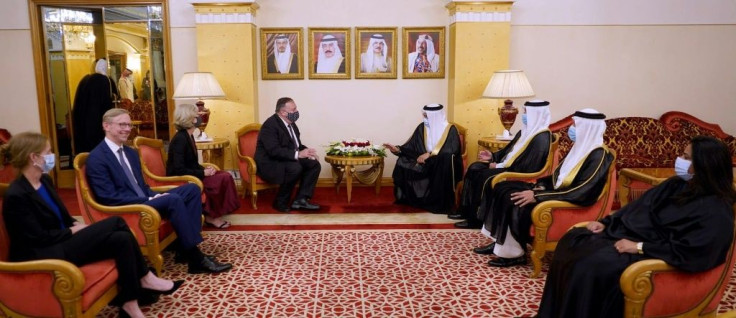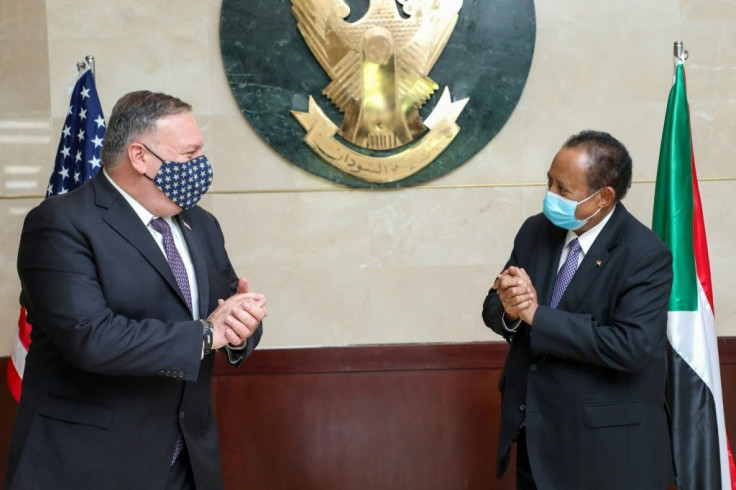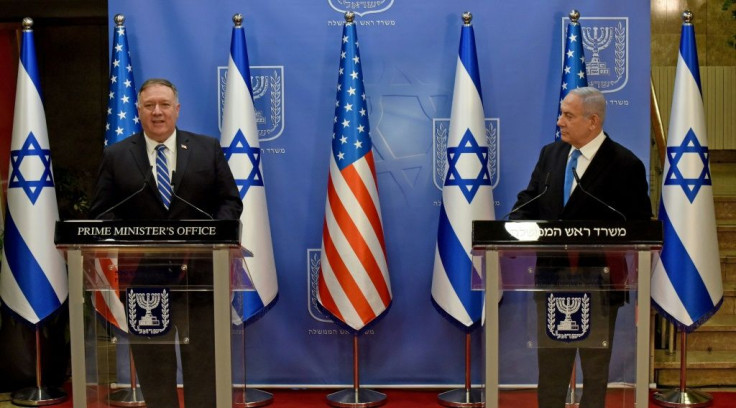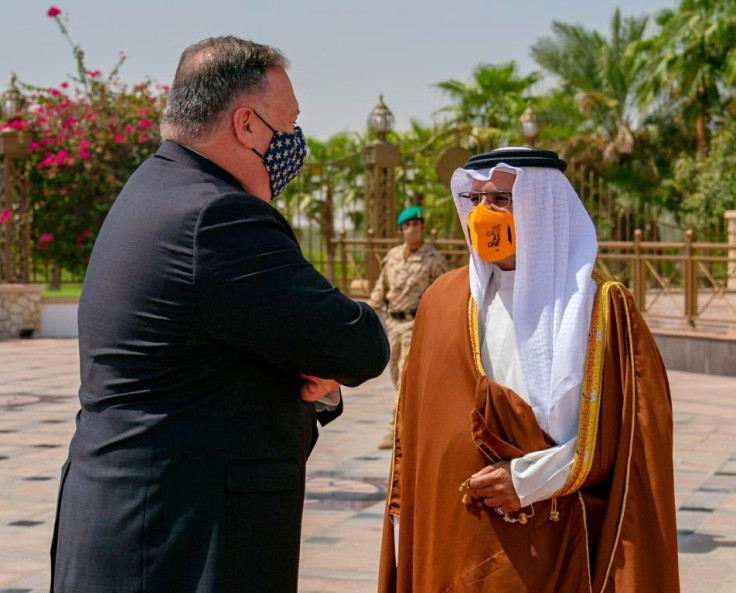Bahrain Sidesteps Pompeo Push For Deal With Israel

Bahrain said Wednesday it was committed to the creation of a Palestinian state in talks with US Secretary of State Mike Pompeo, implicitly rejecting his push for Arab countries to swiftly normalise ties with Israel.
Pompeo was in Manama as part of a Middle East trip aimed at forging more links between Israel and the Arab world after a landmark US-brokered deal with the United Arab Emirates.
The US chief diplomat has said he is hopeful other nations will follow the UAE, which earlier this month became only the third Arab country to agree to establish relations with the Jewish state.
"Hopeful we will build on this momentum towards regional peace," Pompeo tweeted as he landed in Abu Dhabi, the latest stop on the tour which has taken in Israel, Sudan and Bahrain.

However, Sudan's transitional government on Tuesday dashed hopes for a speedy breakthrough, saying it has "no mandate" to take such a weighty step.
And Bahrain echoed the sentiments of its ally, regional heavyweight Saudi Arabia, that an accord with Israel would not materialise without the establishment of an independent Palestinian state.

Bahrain's King Hamad bin Isa Al-Khalifa said he told Pompeo that his country remains committed to the Arab Peace Initiative -- which calls for Israel's complete withdrawal from the Palestinian territories occupied after 1967, in exchange for peace and the full normalisation of relations.
"The king stressed the importance of intensifying efforts to end the Palestinian-Israeli conflict according to the two-state solution... to the establishment of an independent Palestinian state with east Jerusalem as its capital," the official Bahrain News Agency reported.
Pompeo said in a tweet only that he discussed with Bahrain's royal rulers the "importance of building regional peace and stability" and "countering Iran's malign influence".

Manama, whose contacts with Israel date back to the 1990s, was the first Gulf country to welcome the UAE rapprochement and was considered a front-runner to follow in its footsteps.

Like most Gulf countries, Bahrain shares with the Jewish state a common enemy in Iran, which Manama accuses of instigating protests by the nation's Shiite Muslim community against the ruling Sunni Al-Khalifa dynasty.
But the UAE's controversial step has been met with criticism from some parts of the Arab world, with the Palestinian leadership condemning it as a "stab in the back", and even US allies in the region have been cautious in their response.
Not only would a formal recognition of Israel be seen by Palestinians and their supporters as a betrayal of their cause, it could also hurt the kingdom's image as the leader of the Islamic world.
Gulf states including Oman, Qatar and Kuwait face barriers to warming ties with Israel, said Cinzia Bianco, a research fellow at the European Council on Foreign Relations.
She said that in these countries "popular opposition towards normalisation is still quite high", despite colder sentiment towards the Palestinian cause in some quarters including among the youth, especially in Saudi Arabia.
During his visit to the UAE, Pompeo held talks with Foreign Minister Abdullah bin Zayed Al-Nahyan and National Security Advisory Sheikh Tahnoun bin Zayed Al-Nahyan, and congratulated them "on the monumental achievement" of the Israel deal.
They also discussed "a lasting ceasefire in Libya, Gulf unity, and countering Iran's malign influence in the region", according to a US statement.
Israeli Prime Minister Benjamin Netanyahu has denied reports that the UAE deal hinges on the sale of US F-35 stealth fighter-jets to the Emirates, saying he opposes a move that could reduce Israel's strategic edge in the region.
US State Department spokeswoman Morgan Ortagus told the official Emirati news agency WAM on Wednesday there are "a tonne of incredibly positive conversations going on" between the US, UAE and Israel.
"As it relates to the F-35 or any military hardware or infrastructure... the UAE and US military and security relationship is a robust one," Ortagus added. "This is not the first instance when the United States has sold military aircraft or hardware, F-16s, (or) others to the UAE."
Pompeo's trip to the Emirates lasted less than two hours before he headed back to Manama. He is expected to then travel on to Oman.
© Copyright AFP {{Year}}. All rights reserved.





















